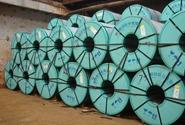Government/Policy

December 12, 2015
Customs Bill Passes House and Heads for Senate
Written by Sandy Williams
The House passed the long-awaited customs bill by a 256-158 margin on Friday. The conference report of the Trade Facilitation and Trade Enforcement Act (H.R.644) includes the ENFORCE act that provides new measures sought after by the steel industry to address evasion of antidumping and countervailing duties.
The bill will head to the Senate for final approval next week and then on to the White House for President Obama’s signature.
House Speaker Paul Ryan, who helped author the bill, called it the “most comprehensive rewrite of our customs laws in a generation.”
The bill was heavily supported by Republican members of the House. Only 24 Democrats voted for the bill, claiming it is a compromise that fails to definitively address currency manipulation or human trafficking issues.
House Minority Leader Nancy Pelosi (D-Calif.) said in a statement on the House floor, “This legislation began as a strong bipartisan trade enforcement bill, it has degenerated into a vehicle for all of the toxic special interest promises that have been made to secure passage of the TPA.”
“They have poisoned a strong trade enforcement bill,” added Pelosi.
The bill has also been criticized for failing to provide tools for trade negotiators to address climate concerns.
Passage of the bill was applauded by steel associations. The American Iron and Steel Institute said the measure is a “positive step for the steel industry to address the evasion of trade remedy orders that has severely impacted our companies and workers.”
Thomas J. Gibson, president and CEO of AISI, said, “Dumped and subsidized steel imports are taking a record share of the U.S. market, and are resulting in major facility idlings and layoffs. The effectiveness of trade remedies hinges on ensuring that the duties authorized by law are in fact collected. Enactment of the ENFORCE Act [as included in this Customs Bill] will help to ensure that is achieved.
“We commend the leadership of the Congressional Steel Caucus, and many of our steel champions in Congress, who worked with us and our member companies to make sure the steel industry’s dire situation was front and center in trade debates. While we may have won some battles, we are still fighting the war — to combat trade distorting practices of foreign producers and governments. Today’s victory is a positive step, however, and we urge the Senate to pass this bill quickly and the President to sign it into law next week,” Gibson concluded.
The National Association of Manufacturers urged the Senate “to keep its commitment to growing manufacturing in the United States by moving on this legislation as soon as possible.”
NAM Vice President of International Economic Affairs Linda Dempsey issued the following statement:
“Our current policies and failure to enforce trade rules are costing manufacturers billions of dollars each year and allowing unfair competition to undermine U.S. manufacturing operations without remedy. This legislation will address many of these problems through provisions that would modernize customs processes, cut red tape and offer new mechanisms, such as the Enforcing Orders and Reducing Customs Evasion (ENFORCE) Act, to improve enforcement of trade rules and protect intellectual property rights. The bill also reauthorizes the State Trade and Export Promotion program, which provides an important mechanism by which small businesses can advance their export opportunities overseas. As the U.S. continues to seek new trade opportunities and level the playing field globally, this legislation will make major advances that will foster manufacturing growth and support American jobs.”







